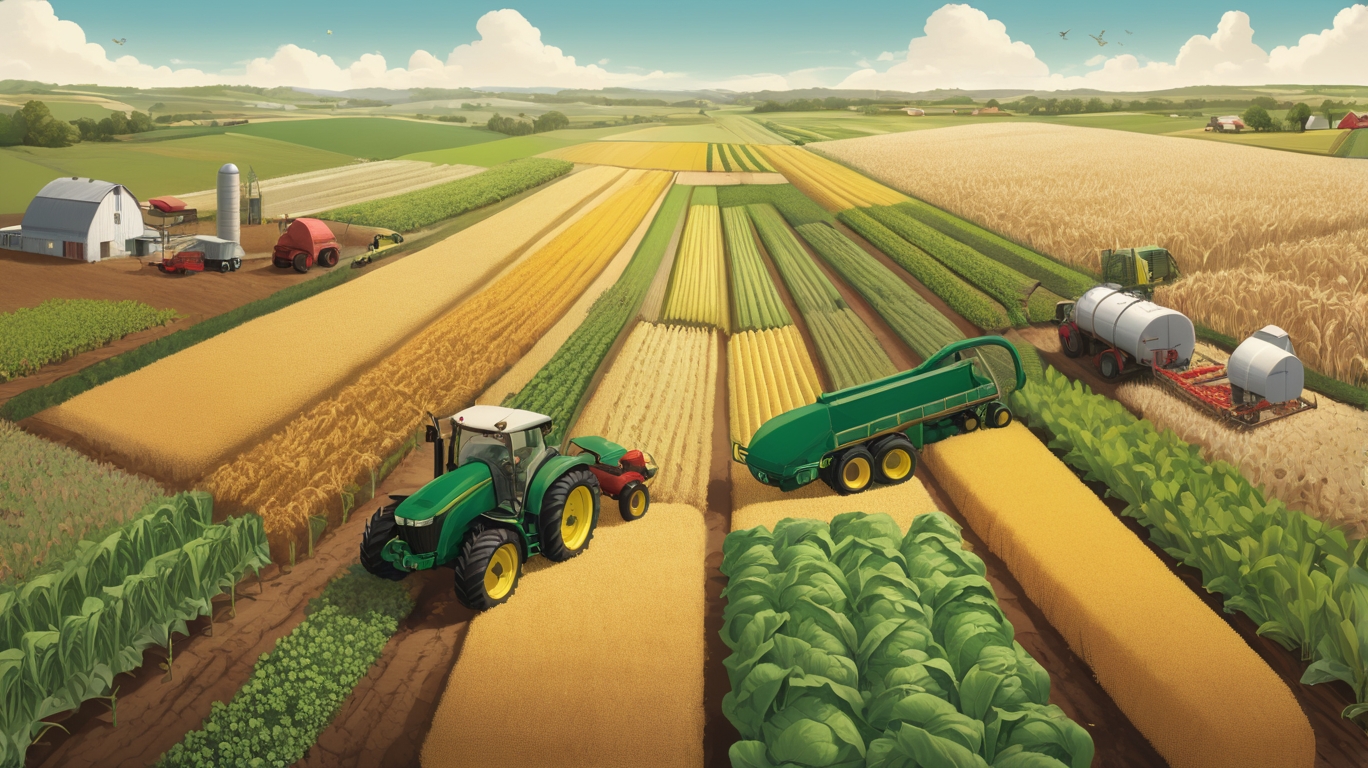The Role of GMOs in Modern Farming: A Balanced Perspective
In today’s rapidly evolving agricultural landscape, genetically modified organisms (GMOs) have become a cornerstone of modern farming. While debates about their safety and ethics continue, GMOs play a significant role in addressing global food security, reducing environmental impact, and improving crop resilience. Understanding their benefits—and acknowledging concerns—can help foster a more informed discussion about their place in agriculture.

What Are GMOs?
GMOs are plants or animals whose genetic material has been altered using biotechnology to introduce desirable traits, such as pest resistance, drought tolerance, or enhanced nutritional content. Unlike traditional breeding methods, which can take years, genetic engineering allows scientists to make precise changes more efficiently.
Benefits of GMOs in Farming
1. Increased Crop Yields
One of the most significant advantages of GMOs is their ability to produce higher yields. By engineering crops to resist pests, diseases, and harsh weather conditions, farmers can grow more food on the same amount of land. This is particularly crucial as the global population continues to rise, with estimates projecting nearly 10 billion people by 2050.
2. Reduced Pesticide Use
Certain GMO crops, such as Bt corn and cotton, are designed to produce their own insecticidal proteins, reducing the need for chemical pesticides. This not only lowers farming costs but also minimizes environmental contamination and protects beneficial insects like bees.
3. Enhanced Nutritional Value
Biofortified GMOs aim to combat malnutrition by increasing essential nutrients in staple crops. For example, Golden Rice is engineered to produce beta-carotene, a precursor to vitamin A, which could help prevent deficiencies in regions where rice is a dietary staple.
4. Climate Resilience
With climate change leading to more extreme weather patterns, drought-resistant and salt-tolerant GMO crops offer a lifeline for farmers in vulnerable regions. These modifications help maintain productivity even under less-than-ideal growing conditions.
Addressing Common Concerns
Despite their advantages, GMOs remain controversial. Critics raise concerns about:
- Long-term health effects – While major health organizations, including the WHO and FDA, deem approved GMOs safe, some consumers remain cautious.
- Corporate control of seeds – A few large companies dominate the GMO seed market, raising ethical questions about farmer dependence and seed ownership.
- Ecological impact – There are worries about cross-contamination with non-GMO crops and unintended effects on ecosystems.
Transparency, independent research, and balanced regulations can help address these concerns while allowing GMOs to contribute to sustainable farming.
A Thoughtful Path Forward
GMOs are neither a perfect solution nor an inherent danger—they are a tool. When used responsibly, they can help farmers produce more food with fewer resources, benefiting both people and the planet. However, ongoing dialogue, ethical considerations, and scientific scrutiny remain essential to ensuring their role in agriculture is both beneficial and sustainable.
As we navigate the future of food, a calm, evidence-based approach will help us weigh the pros and cons of GMOs—acknowledging their potential while remaining mindful of their challenges.
What are your thoughts on GMOs in farming? Share your perspective in the comments below.